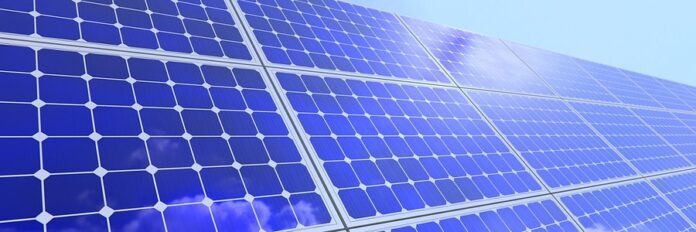| As winter creeps around keeping energy costs manageable is a priority for renters and homeowners alike. Martin Desmond, Managing Director at Wizer Energy, has shared some practical tips to reduce energy bills, improve home energy efficiency and save you hundreds of pounds per year just in time for the colder months. |
| Renters – What Can You Do? |
| Many renters feel they have limited control over their energy usage, especially in older or less energy-efficient properties. However, there are simple, effective ways to reduce energy consumption: |
| “There are a lot of people renting in this country and they may be living in older, more energy inefficient buildings which means things can be pretty precarious as the temperatures drop and the days become shorter – the good news is there are a few things you can do to save some money and offset any big bills that may be racked up” – Martin Desmond, Wizer Energy |
| Heating The Space Correctly |
| “Heating is one of the biggest costs in winter, but small adjustments can make a big impact. If you can lower your thermostat by just one degree you can reduce your heating bill by up to 10% annually. This means savings of around £80-£100 a year depending on the size of your rental property,” explains Desmond |
| He continues, “If you’re in a position to do so, you can also talk to your landlords about really simple energy efficiency improvements. Installing draught excluders or asking for thicker curtains can reduce heat loss significantly. If you’re paying for heat, these steps can lead to another 5-8% savings on bills. It’s something so small but it makes a huge difference – Also you’ll see in a lot of older properties there’ll be significant issues with damp, if you get some thicker curtains in and pair them up with a draught excluder, you’re seriously mitigating the risk of mould growth by reducing the amount of condensation that may form on walls and windows.” |
| Appliances – Fridges, Washing Machines & What to Do |
| Be energy efficient with appliances when possible. Renters often assume there’s little they can do, but there are plenty of small tricks that can have a big impact. Martin advises, “Fridges and freezers mostly account for 10-20% of energy bills. Here’s the interesting part, these machines actually work more efficiently when they’re full, so by keeping them well stocked you’ll ensure proper air circulation, which can reduce their energy usage by up to 10%! Keep your fridge at around 3-5 degrees for optimum performance and also did you know that the coils at the back of your fridge can get dirty over time? It’s important to keep these clean as it actually improves the performance of the fridge itself.” |
| Also, another handy one for you, if you have something to defrost, let it do so in the fridge overnight – it lowers the fridge’s temperature, reducing its workload.” |
| Most people know by now that the washing machine/dryer is one of the most resource heavy appliances in the home, be clever how you use them – |
| “Washing at lower temperatures is another great tip. Setting your washing machine to 30 degrees instead of 40 can save up to 40% on energy use per load. Similarly, avoid using the dryer unless necessary—dry clothes on a clothes horse instead. Electricity costs have soared in recent years and the dryer can be a massive drain on your pocket, to dry an average load clothes you could be looking at costs as high as £2 depending on the age & energy rating of your unit, so try and dry them elsewhere if you can.” |
| Lighting – LEDs the Way to Go |
| Lighting is often overlooked, but switching to energy-efficient LED bulbs can reduce lighting costs by 75%. |
| “It’s a small investment with big returns. Energy-efficient bulbs can reduce annual electricity bills by as much as £50 for an average rental property, so don’t miss out!” |
| Smart usage of cooking appliances is another key strategy. “Use your microwave, air fryer or even a slow cooker instead of the oven, whenever possible,” suggests Martin, “These appliances use significantly less energy and are often more convenient for a busy renter.” |
| Switching Energy Providers |
| “If you’re paying for your own electricity and gas, consider switching providers—it could save you up to £300 annually,” advises Desmond. Smart meters can also help renters track their energy usage in real-time, reducing costs by identifying energy-hungry devices left on standby |
| Homeowners: How to Boost Your EPC Rating for Savings and Sustainability |
| What is an EPC Rating? |
| The Energy Performance Certificate (EPC) system measures a property’s energy efficiency on a scale from A to G, with A being the most efficient. Higher EPC ratings indicate better insulation and lower energy bills, which can save homeowners substantial money during winter. |
| Why Improve Your EPC Rating? |
| Improving your EPC rating can result in significant financial savings. “Homes with high EPC ratings can save up to £1,000 annually compared to less efficient properties,” says Desmond “By getting your EPC rating from a G to an A you could save anywhere from £650-£1500 per year depending on the circumstances, so it’s worth having a look.” |
| Additionally, using less energy lowers your home’s carbon footprint, contributing to a more sustainable future |
| Quick Wins to Improve EPC Ratings |
| Improve Insulation |
| Insulating your attic, walls, and floors can significantly reduce heat loss, which accounts for up to 30% of a home’s energy consumption. Proper attic insulation alone can save homeowners around £250 annually. Desmond notes that the initial investment can vary, with attic insulation typically costing between £1,200 and £3,000, but government grants are available to help offset these costs |
| Upgrade Your Boiler |
| Replacing an older boiler with a modern condensing model can save up to £500 per year. Alternatively, switching to a heat pump could save up to £1,000 annually by using renewable energy to heat your home |
| Invest in Solar Panels |
| Installing solar panels is another fast way to improve your EPC rating. “A typical solar PV system can save you between £500 and £1,200 annually, depending on the size and energy usage,” Desmond explains. With the UK government’s Smart Export Guarantee, homeowners can also sell excess energy back to the grid, shortening the payback period |
| Draught-Proof Your Home |
| Sealing gaps around windows and doors can reduce energy costs by around £40 to £150 annually by preventing heat loss. Adding draught excluders or using window film can offer substantial savings |
| Switch to LED Lighting |
| “I’d imagine a lot of households have already done so, but switching out traditional incandescent bulbs for LED lighting is a small but impactful step in improving your EPC rating. You’d be surprised, LED bulbs use up to 85% less energy than traditional bulbs and with lighting accounting for about 10-15% of your electricity bill generally, the savings can add up quickly.” adds Desmond |
| Replacing all the bulbs in your home with energy-efficient LEDs can save you around £100 annually on electricity bills, while also reducing your carbon footprint. |
About Wizer Energy ;Wizer Energy Ltd is your ideal choice for renewable energy installations and solar panels in Ireland. Since 2015, we have successfully completed over 4000 domestic Solar PV installations. Wizer Energy Ltd is your ideal choice for renewable energy installations across the residential and commercial industries, specializing in solar panel installation and EV chargers.
Nationwide Domestic PV Solar Panel Systems – Grants Available |
| Save 50% on your Annual Electricity Bills – We are Ireland leading Domestic PV Systems Experts. From Solar Panels to EV Chargers etc |

| [donate]
| Help keep news FREE for our readersSupporting your local community newspaper/online news outlet is crucial now more than ever. If you believe in independent journalism,then consider making a valuable contribution by making a one-time or monthly donation. We operate in rural areas where providing unbiased news can be challenging. |



















